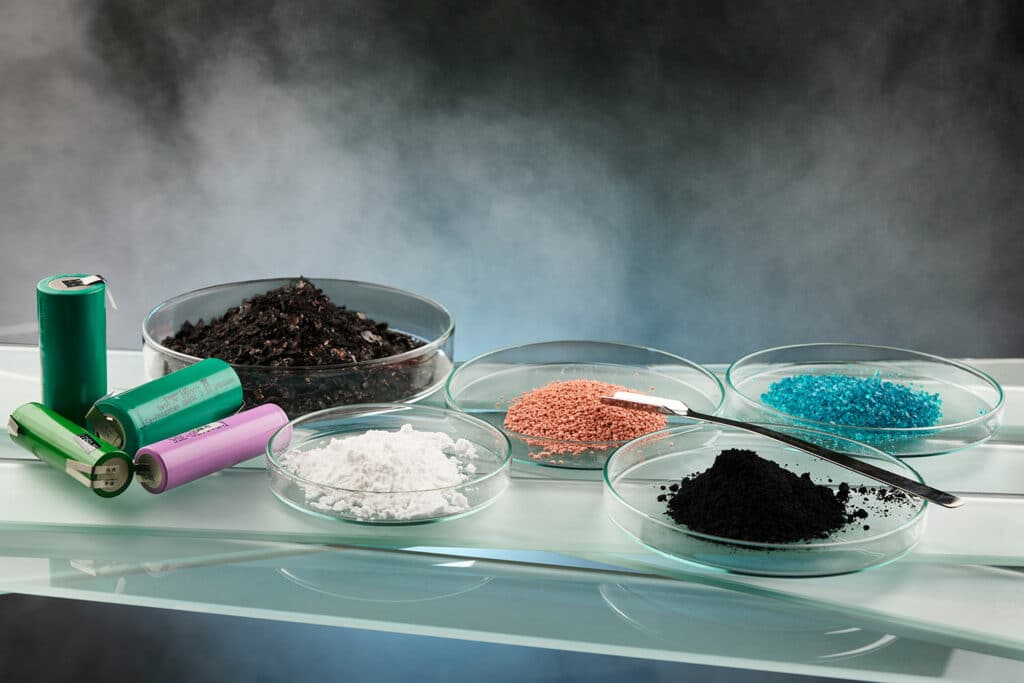Lithium-ion Battery (LIB) plays a significant role in our daily lives. Their usage is omnipresent in most rechargeable electronic devices, and they are also the most important energy storage systems for the rapidly growing electric mobility sector. The increasing demand for these batteries eventually results in the need for economically and ecologically sustainable recycling methods.
Currently, nickel and cobalt, copper and aluminum, as well as steel, are mainly recovered from battery waste for reuse. Recovering lithium is expensive, challenging, and hardly profitable.
Now, researchers at Karlsruhe Institute of Technology (KIT) have developed a novel recycling method that can recover up to 70% of lithium from battery waste without corrosive chemicals, high temperatures, and prior sorting of materials being required. The method combines mechanical processes with chemical reactions and enables inexpensive, energy-efficient, and environmentally compatible recycling of any type of lithium-ion battery.

It is developed by researchers from the Energy Storage Systems Department of KIT’s Institute for Applied Materials (IAM-ESS), the Helmholtz Institute Ulm for Electrochemical Energy Storage (HIU) established by KIT in cooperation with Ulm University, and EnBW Energie Baden-Württemberg AG.
“The method can be applied for recovering lithium from cathode materials of various chemical compositions and, hence, for a large range of commercially available lithium-ion batteries,” says Dr. Oleksandr Dolotko of IAM-ESS and HIU, the first author of the publication. “It enables inexpensive, energy-efficient, and environmentally compatible recycling.”
The team used aluminum, which is already contained in the cathode, as a reducing agent in the mechanochemical reaction. The method works as follows: First, the battery waste is ground. This material then reacts with aluminum to metallic composites with water-soluble lithium compounds. Lithium is recovered by dissolving these compounds in water and subsequent heating to make the water evaporate.
As the mechanochemical reaction takes place at ambient temperature and pressure, the method is highly energy efficient. Another advantage is its simplicity, which will facilitate use on an industrial scale, as large amounts of batteries will have to be recycled in the near future already.
Journal reference:
- Oleksandr Dolotko, Niclas Gehrke, Triantafillia Malliaridou, Raphael Sieweck, Laura Herrmann, Bettina Hunzinger, Michael Knapp and Helmut Ehrenberg. Universal and efficient extraction of lithium for lithium-ion battery recycling using mechanochemistry. Communications Chemistry, 2023. DOI: 10.1038/s42004-023-00844-2
New method recovers up to 70% of lithium from battery waste
Source: Tambay News

0 Comments